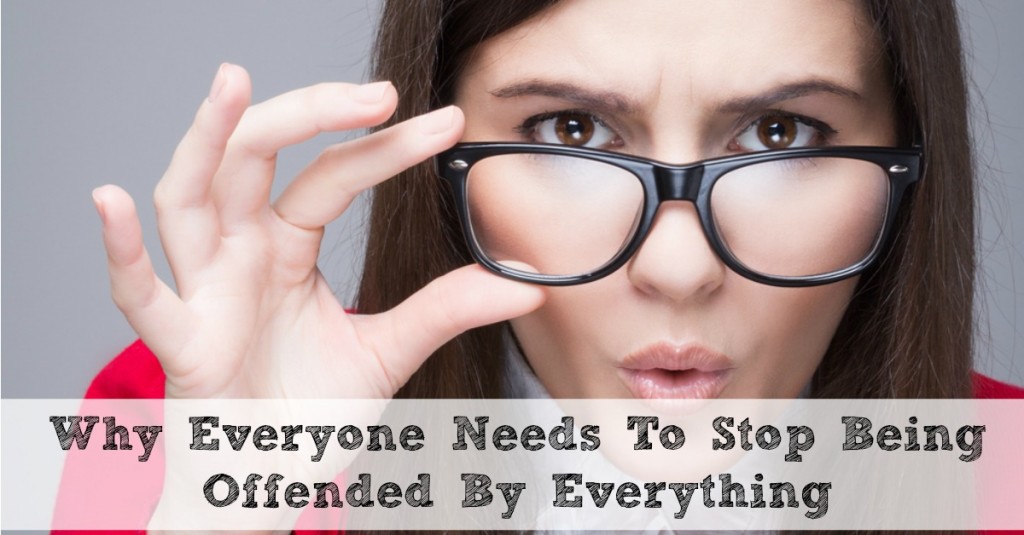How Not to Be Offensitive

 “Maybe, you might have some advice to give
“Maybe, you might have some advice to give
How [not] to be [offensitive]….” – Jann Arden “Insensitive”
Offensitive – Easily offended and overly sensitive
I can be fairly sarcastic, a little sardonic, and sometimes I offend people with my off the cuff remarks. There were years where I introduced myself to classes by telling them, “I’m sarcastic, and if that doesn’t work for you, I have two doors in my classroom”. In no way was this helpful, or something that should have been said on the first day of school, nor did it endear me to those I was tasked with educating. It didn’t earn me respect, and frankly, it broke my chances at building a strong connection with several students who needed a positive influence, rather than a jerk. Maybe.
I have a really hard time not being myself in front of students. I have a good time with them, joking around, and having real conversation about life and how to live it. Maybe some students are just too offensitive – new word from Anthony Muhammad that means “too easily offended and overly sensitive”.
I think there is quite a bit of merit to being your most honest self in front of students. They need to see a real person in front of them. It used to be the norm for teachers to be robotic. They were there to instruct, and instruct only what was supposed to be taught. Teachers were the sage on the stage, with a book on the podium, a chalkboard behind them, and no time for the students in front of them. They lacked personality, and a way or want to connect with their most immediate stakeholders. This is not to say there weren’t incredible teachers throughout the 19th and 20th centuries who were wonderful at making honest connections, but that wasn’t the basis upon which education was built.
There is a need to be both of these teachers. We shouldn’t be the sage on the stage. We should stick to the theory that 10-15 minutes of direct instruction per hour is a solid amount of time, and that students should be working in groups, or in discussion, or in some type of activity that furthers their understanding and moves them toward content area proficiency.
But what do we do about the students who are super offensitive? There were always a good handful of students who didn’t appreciate my sarcasm, or somewhat dark humor, and I tried to make sure that with those kids I was careful, and intentional with my words. Code switching is important in those situations. It’s good to make sure you truly know your population, and know how to differentiate your approach. The offensitive students will pick up on the differences, and it will go a long way toward building those necessary relationships.
It is not the students who need to become less offensitive or develop thick skin, it’s the teacher who needs to know when to soften their own.
